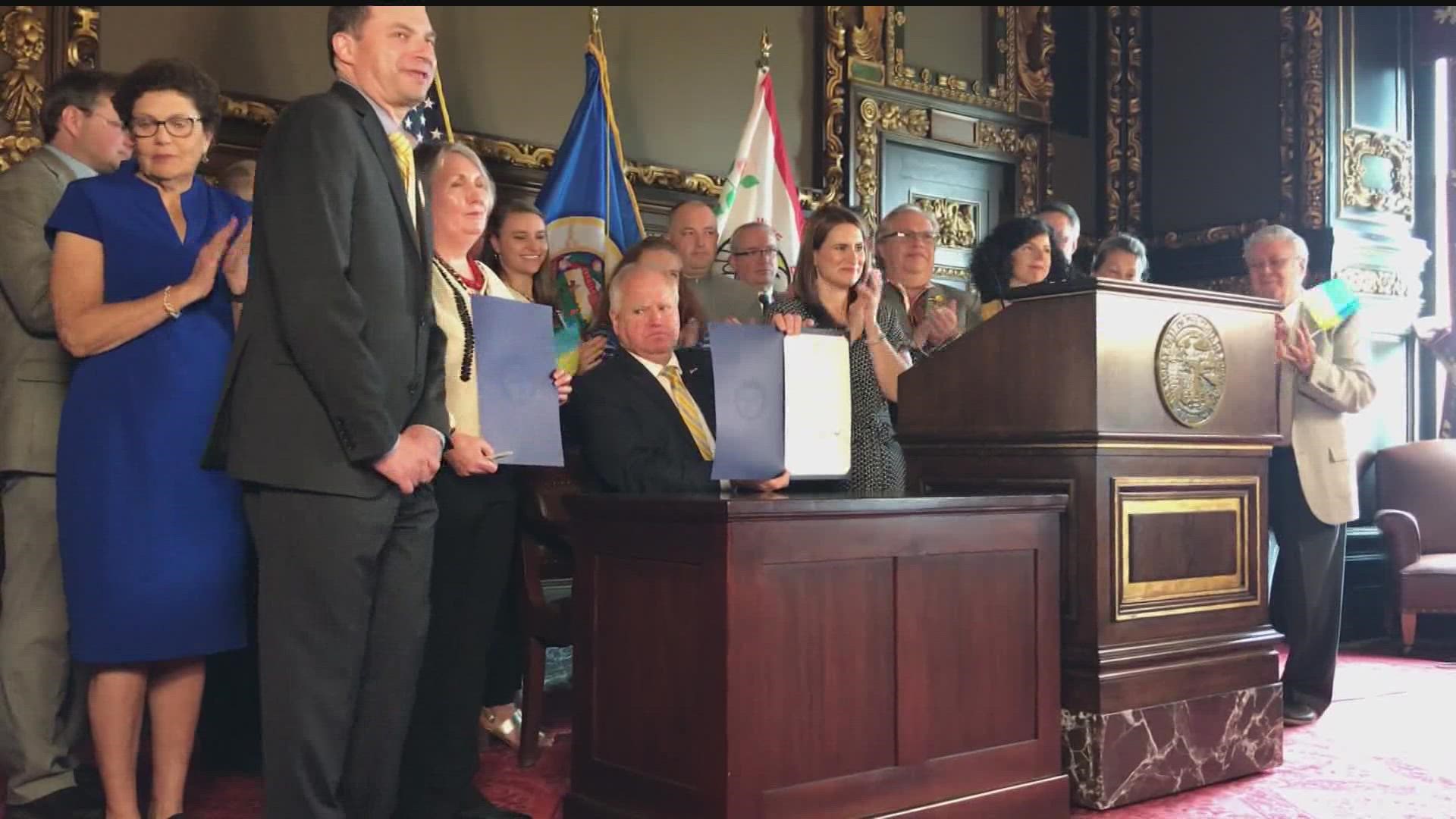SAINT PAUL, Minn. — It appears Minnesota's record $9 billion surplus will remain on the books at least until next January, after negotiations over a special session ended Thursday without any deals.
Gov. Tim Walz and DFL House Speaker Melissa Hortman emerged from the latest round of talks with GOP Senate Majority Leader Jeremy Miller to say the Senate won't be making any further offers this summer.
"Deeply disappointing. We have reached an impasse," Gov. Walz told reporters at the State Capitol.
"I believe the exact statement made was the offer that was made on May 23rd is the only offer that will be made. Think about this. Think about Minnesota Republicans walking away form the largest tax cuts since 1858! "
A bill that would deliver $4 billion in tax cuts, and several major supplemental spending bills are still unfinished, because House Democrats and Senate Republicans haven't agreed on final compromises.
Senator Miller, who attended the final negotiating session via Zoom, issued a statement confirming that talks have ended.
"Even with a bipartisan legislative agreement to cut income taxes and end the tax on Social Security benefits, Democrats weren’t willing to pass this bill without billions more in spending," Miller wrote.
"Governor Walz and the House Democrats have different spending priorities than Minnesotans. After four months of session and four more weeks of discussions, the differences could not be resolved."
Governors typically don't call special sessions in Minnesota's politically divided legislature until all the language of all of the bills is agreed upon by leaders who can deliver the votes.
Walz's cabinet commissioners, and the chairs of the House committee had been engaged in background conversations with the Senate counterparts, in an effort to button up bills that were still in limbo when the clock ran out on the regular session May 23.
"We have spent all of the days since the session ended working, in some cases around the clock, to get offers that move hundreds of millions of dollars toward the senate position," Rep. Hortman explained.
She said Democrats made new offers on transportation, public safety, health and human services and other unfinished bills but haven't received counter offers from the Senate GOP.
"Today what Senator Miller told us that was so deeply disappointing is that Senate Republicans only consider themselves bound to work until midnight of the last day of the regular session. And they really have no interest in returning to negotiate to finish this work," Rep. Hortman said.
Rep. Hortman had previously asserted average Minnesotans care more about the legislature finishing the job than they do about whether they wrapped it up in the 120 days the state constitution allows for a regular session. Special sessions have become common place in budget years, to fend off the threat of a state government shutdown.
She repeated that message Thursday after hitting an impasse in talks.
"Minnesotans deserve more funding for their nursing homes, they deserve more funding for special education in our schools, they deserve safe roads and bridges and we put at risk billions of dollars in federal money by not finishing this deal," she said.
But 2022 wasn't a budget year. Lawmakers passed a balanced two-year budget in 2021, so all of the spending and tax cuts that were in the hopper this year were technically discretionary spending.
Miller joined Walz and Hortman at a Capitol press conference a week before the regular session ended to announce what became known as the 4-4-4 deal, $4 billion in tax cuts, $4 billion new spending and $4 billion in surplus left in the 2025 fiscal year.
They left if to committee chairs to try to hammer out the details, but time ran out before they could pass legislation that could merge the House and Senate versions of those bills.
Hortman said she learned in the final round of talks that Miller believed that deal was only good until the end of regular session, which she found surprising.
Miller made it clear to reporters on the final night of the session that he wasn't inclined to go along with a special session, but would listen to offers from the Governor and House Democrats.

